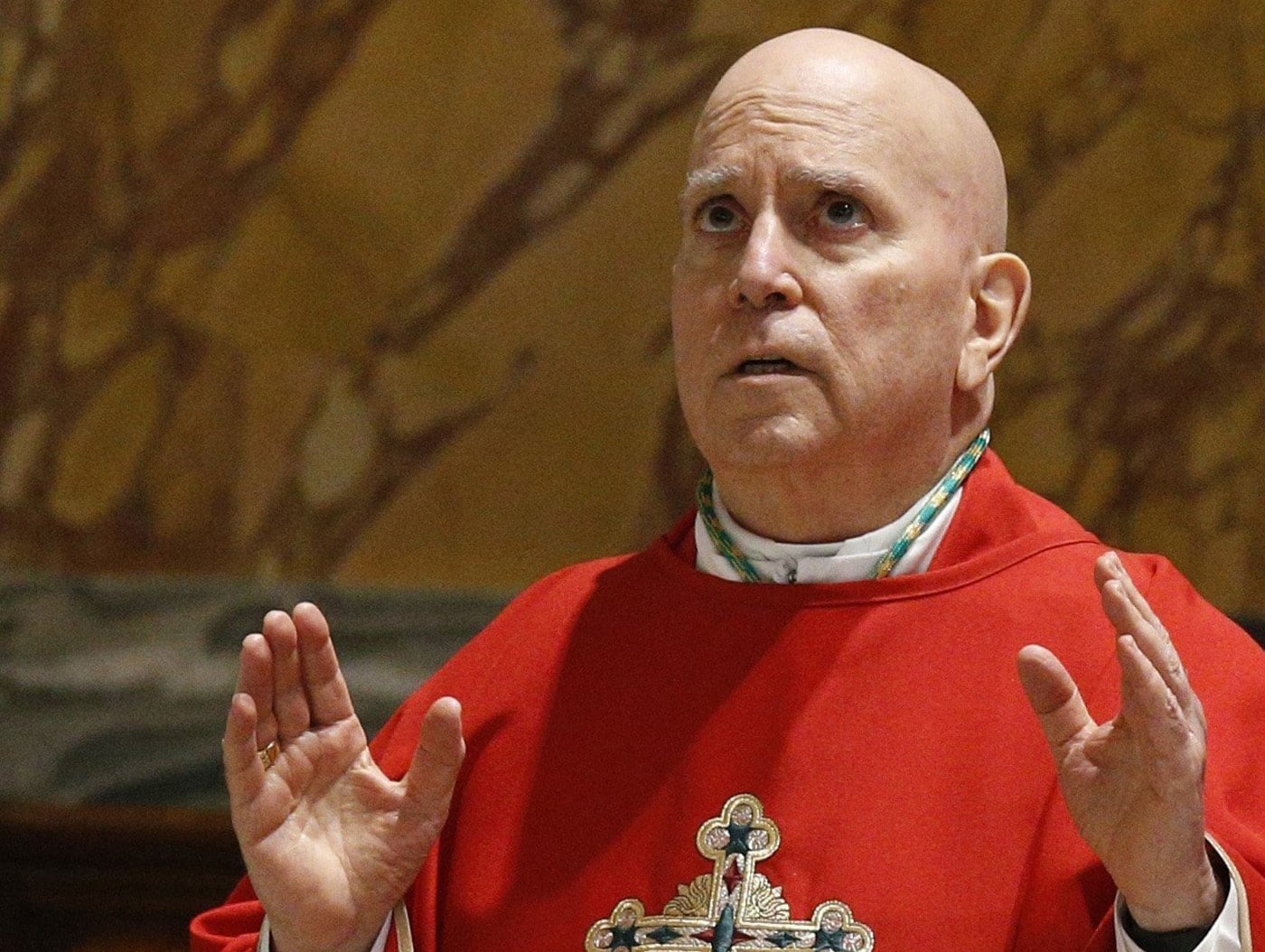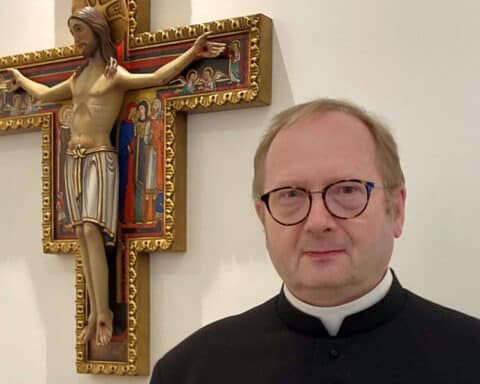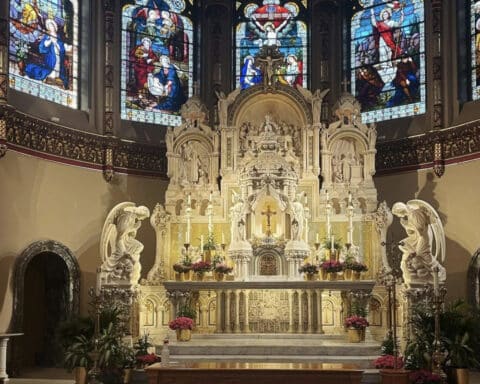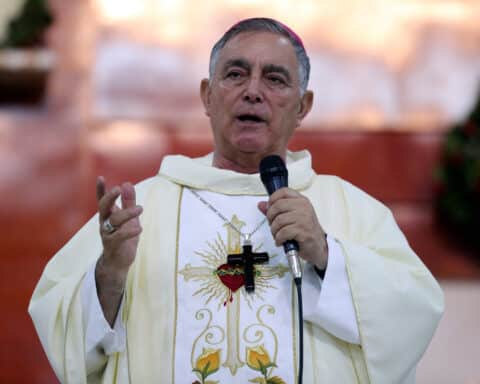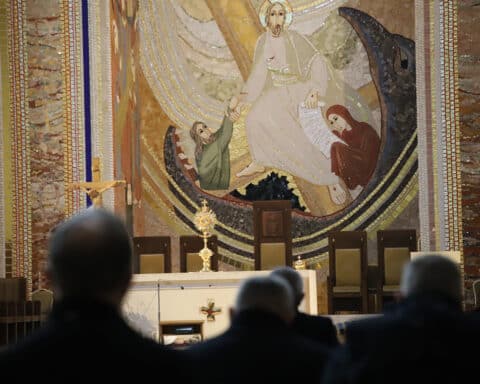(OSV News) — Archbishop Samuel J. Aquila of Denver has issued a new pastoral note on the Eucharist, inviting the faithful to rediscover the Real Presence of Christ in the Eucharist by reflecting on key Gospel passages.
The document’s release, announced Aug. 4, coincides with the three-year National Eucharistic Revival, launched in June 2022 by the U.S. Conference of Catholic Bishops as a grassroots initiative to rekindle devotion to the Eucharist among the nation’s Catholics.
In particular, the pastoral note is tailored to the revival’s second phase, which focuses on the Eucharist and the parish.
“The Eucharist is at the heart of parish life and is without a doubt the most common place the faithful encounter Jesus’ presence in the Eucharist,” wrote Archbishop Aquila.
The nine-page note, titled “You Have the Words of Eternal Life,” is available in English and Spanish on the archdiocesan website, along with an audio version narrated by Father Sam Morehead, pastor and rector of Denver’s Cathedral Basilica of the Immaculate Conception.
Bread of Life discourse
Accompanying the pastoral note is “John 6,” a 29-page resource designed to “facilitate … an encounter with Jesus through engaging in dialogue with Him about his words and deeds” in that chapter of John’s Gospel, according to the document’s preface.
The resource offers biblical and historical context for the chapter “in a way that is approachable to the average Catholic,” while providing points for reflection and prayer, said the text.
Both the sixth chapter of John, which includes the “Bread of Life” discourse (Jn 6:22-59), and Luke’s retelling of the Risen Christ’s appearance to two disciples walking to Emmaus (Lk 24:13-35) are crucial passages for deepening devotion to the Eucharist, said Archbishop Aquila in his note.
“I cannot stress enough how important it is for us during this Eucharistic Revival to have frequent recourse to these two passages and to approach them with the heart of a true disciple,” he wrote.
With a “crisis of faith” dramatically eroding belief in the Real Presence, the archbishop stressed the need to “let Jesus be the teacher.”
“In John 6, we encounter Jesus’ direct teaching on the Eucharist,” wrote Archbishop Aquila. “If anyone would question whether the Church’s teaching accurately represents Jesus’ own teaching, look no further than this chapter.”
In that chapter, Jesus emphatically declares, “I am the living bread that came down from heaven. If anyone eats this bread, he will live forever. And the bread that I will give for the life of the world is my flesh. … Truly, truly, I say to you, unless you eat the flesh of the Son of Man and drink his blood, you have no life in you” (Jn 6:51, 53).
Jesus’ teaching
Archbishop Aquila said those words are currently sparking “a very beautiful and public questioning” and reflection by “several courageous and deeply faithful non-Catholic Christian pastors.”
He cited as an example American evangelical pastor Francis Chan, founder of California-based Crazy Love Ministries, who “has been very open about his journey with the Lord and his growing understanding of John 6.”
Chan has admitted in several interviews that pondering texts such as chapter 11 of Paul’s First Letter to the Corinthians, as well as Church history and the writings of the Church Fathers, has led him to move from a symbolic to a literal understanding of Communion.
“The most beautiful part of the story is that it is Jesus’ own teaching in the Gospel which moves Chan’s heart and inspires him to press deeper into the mystery Jesus is revealing,” said Archbishop Aquila. “It is this same disposition that I hope we can bring to the Word of God, one that is able to take Jesus’ words at face value and not dismiss them as if full assent to them is optional.”
“This is the truth which Jesus places before us: He gave us his flesh to eat and his blood to drink so that we might have eternal life,” said the archbishop.
Luke’s road to Emmaus passage, one of Archbishop Aquila’s “favorite resurrection passages,” is also essential to Eucharistic revival, since the story “parallels so well the celebration of the Mass,” wrote the archbishop.
In the narrative, the resurrected Christ reveals himself to two downcast disciples, first by interpreting the Scriptures foretelling his Passion, and then by making himself “known to them in the breaking of the bread” (Lk 24:35).
“At every Mass, Jesus desires to break open his word for you just as he did for the disciples on the road to Emmaus,” wrote the archbishop. “I pray that our eyes and hearts are opened to a deeper understanding and to greater participation in the mystery of the Eucharist, the love of Jesus given and poured out for us.”

